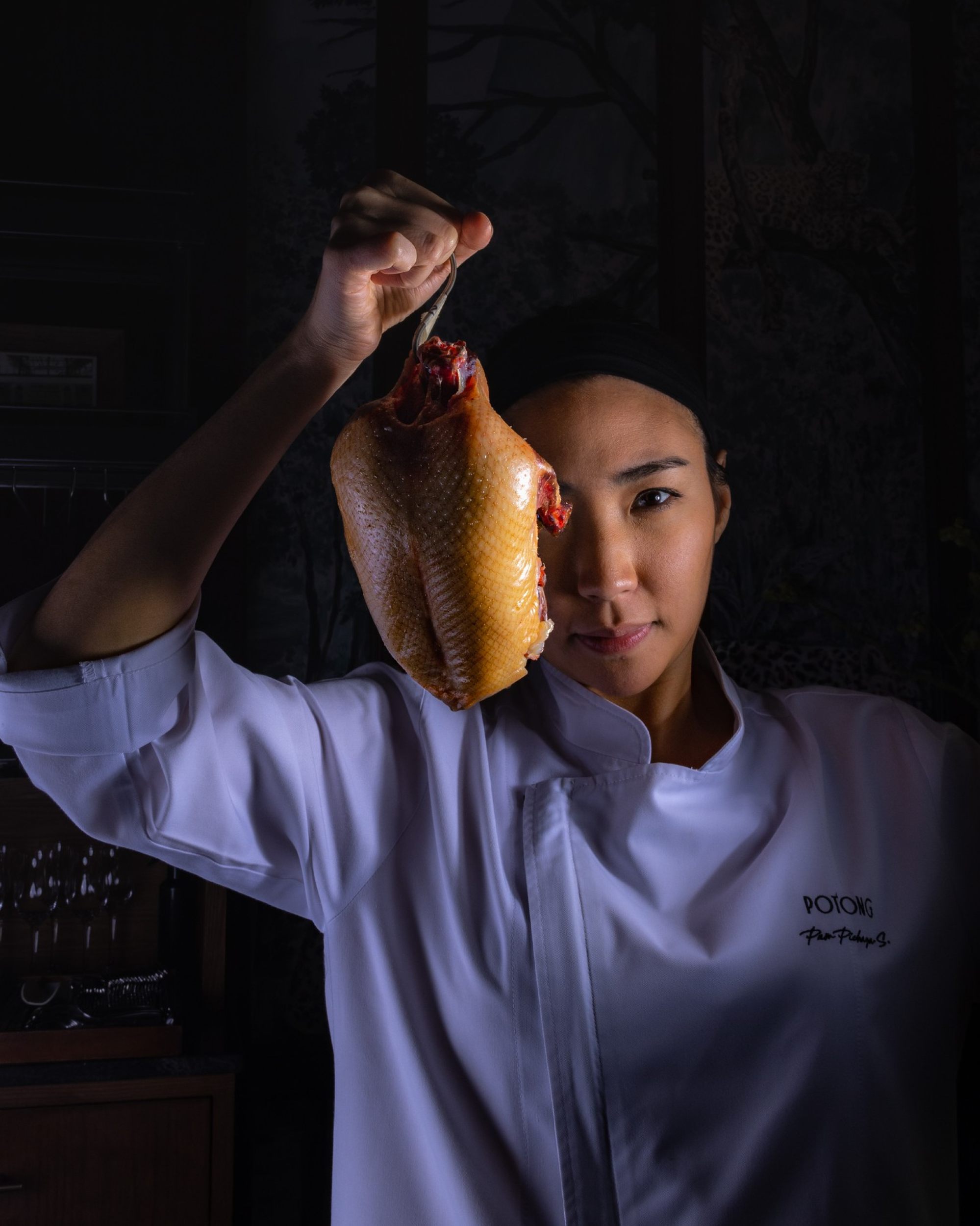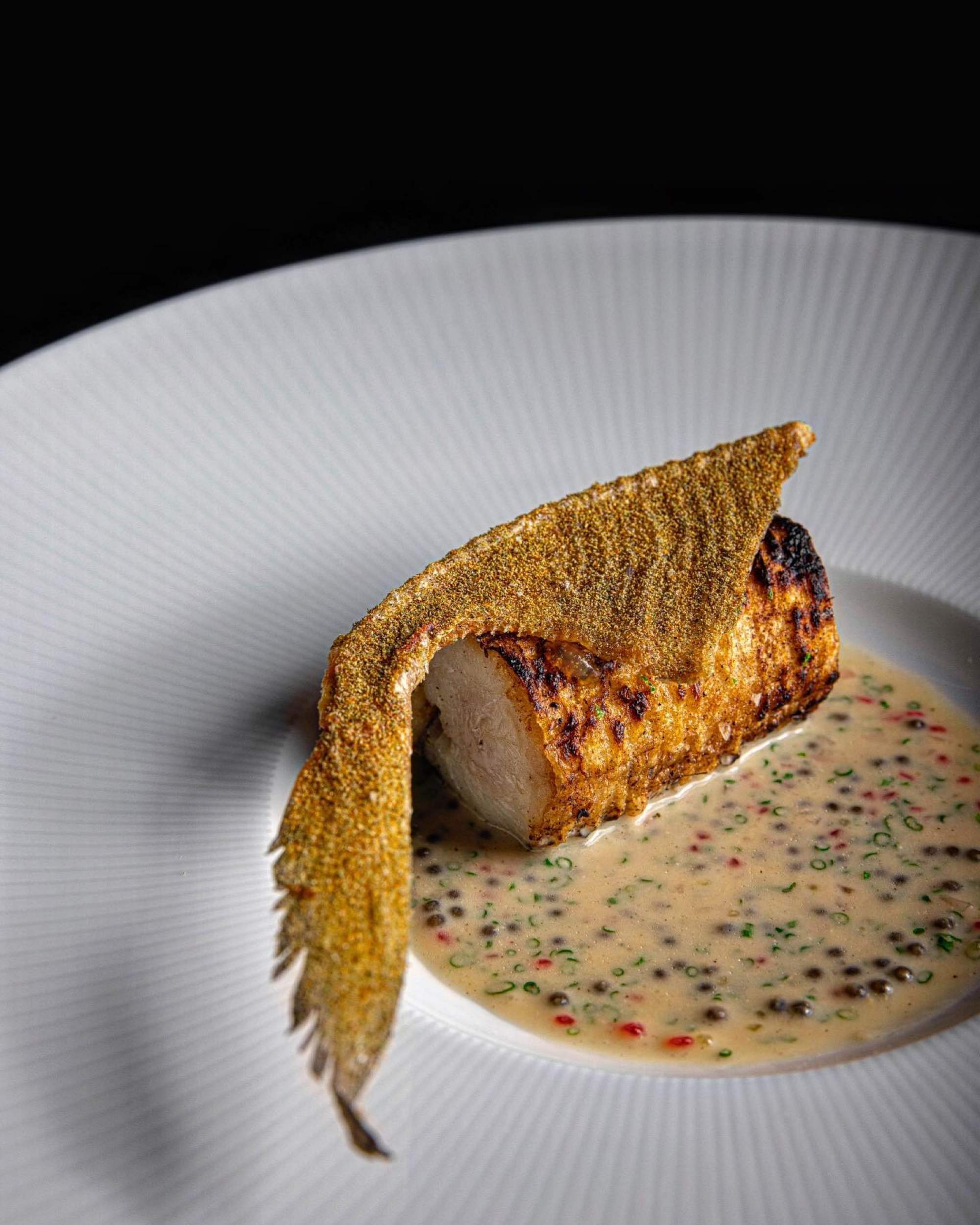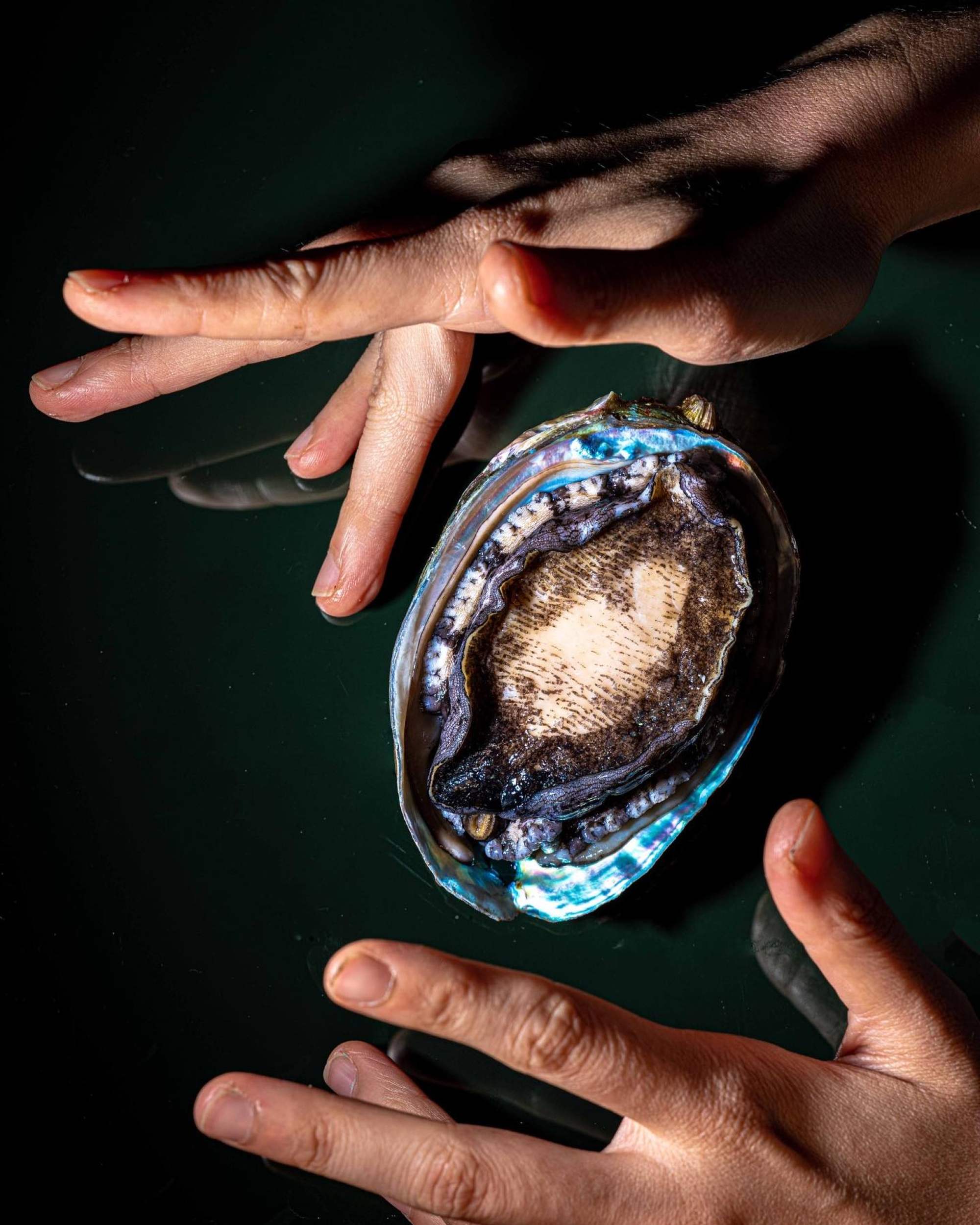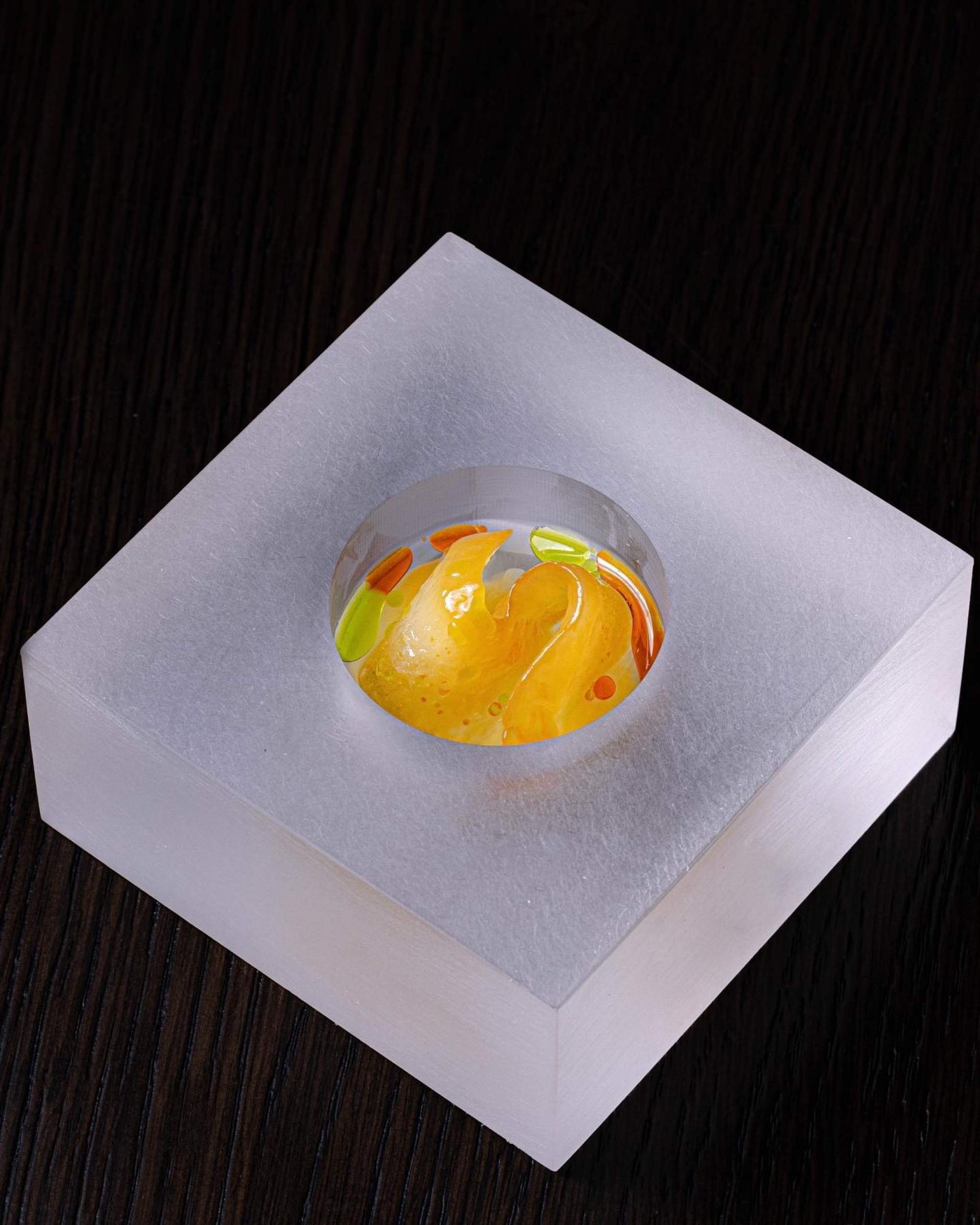“It’s a very homey dish that my mum always cooked, and she’s always telling me the tricks of the original, and how to do it perfectly,” says Pichaya. “That has stuck [in] my head until now and I cannot leave that out of the menu.”
While evidently a version that, visually, has little to do with the original that inspired it, the dish seems an unspoken expression of Pichaya’s fondness for her mother’s cooking. “When you eat it, it feels very familiar,” she says.
The young chefs who’ve made Bangkok one of Asia’s best dining destinations
The young chefs who’ve made Bangkok one of Asia’s best dining destinations
Growing up, young Pichaya would help the family chop onions in the kitchen. It was at the dining table, not in the living room, that the Soontornyanakijs would spend the most time, huddled around a lazy Susan heaving with home-cooked dishes.
It is why, at Potong, Pichaya serves a show-stopper roast duck course that has delicate, intricately plated dishes served on specially designed, two-tier lazy Susans that are small enough to fit in front of a single diner.
“That particular family-style dish brings it back to what people link to home, love and comfort,” says Pichaya. “It’s not pretentious, and we serve it with rice.
“It’s really something that finishes off the meal because sometimes when you go to fine-dining restaurants, you get full but you feel like there isn’t a fulfilment in your heart somehow.”
It is not only cooking that has become a love language for Pichaya – it turns out she made the crockery used in the restaurant’s early days, in addition to customising its lazy Susans.
“I wanted to be a painter, or a sculptor,” Pichaya admits when quizzed about her childhood dreams. “I always love to be hands on, get my hands on anything, whether it’s paint or clay or food.”
She did not end up pursuing it, though, instead studying communication arts in college in Thailand, which did not resonate with her.
“My mum said to me, why don’t you go and learn cooking?”

Later, it would transpire that it was always her mother’s dream to attend cookery school when she was younger, but she did not have enough money to pursue it.
“She really pushed me to pursue this dream as well,” Pichaya recalls fondly.

Unlike others who went to open restaurants or entered professional kitchens after graduating, Pichaya decided to go out on a limb and relocate to New York – for the first time in her life, she would be living in a foreign country.
“It was the best decision that I have ever made because it made me independent, and [taught me] how to survive on my own,” she says.
It was in New York that she gained some of her most valuable experience, first at the Culinary Institute of America, and then by interning at three-Michelin-star Jean-Georges.
“It really gave me that experience and the vision of what other countries are doing,” says the chef. “If I graduated from Le Cordon Bleu in Thailand and decided to stay here in Thailand and start my career right away, I don’t think I could have really broadened my vision to see other worlds or other cultures.”

Not that it was not a tough slog – Pichaya recalls that she would often call home in tears, unaccustomed to American kitchen culture and the chefs’ straightforward way of communicating.
“It made me strong as a person, and I became more disciplined. The biggest lesson I learned is not to take anything personally.”

She is doing that through a new scholarship programme called Women for Women (WFW) together with the American Women’s Club of Thailand. The goal, Pichaya says, is to provide support for young women living in rural areas of the country to achieve their dream of becoming chefs.
Rather than offering short-term stages of several months, Pichaya wants a hand-picked candidate to spend a year at Potong to fully immerse herself and learn the ropes, with everything from housing to transport, meals to pocket money sponsored by her.
She knows, from experience, how valuable an opportunity can be – but also how it can take some time to adjust to life as a chef.

“I really want them to push it, because if it’s just a month or two, she can quit in the culinary world,” says Pichaya. “It needs time to adjust and to really cope with the challenges in the kitchen. Like for me, I needed a couple of months to really, you know, stop crying,” she laughs.
“I’m really looking forward to this programme, and to meeting the chosen female.”
Pichaya ‘Pam’ Soontornyanakij will officially accept the Asia’s Best Female Chef 2024 award at a ceremony in Seoul, South Korea, on March 26, 2024.







